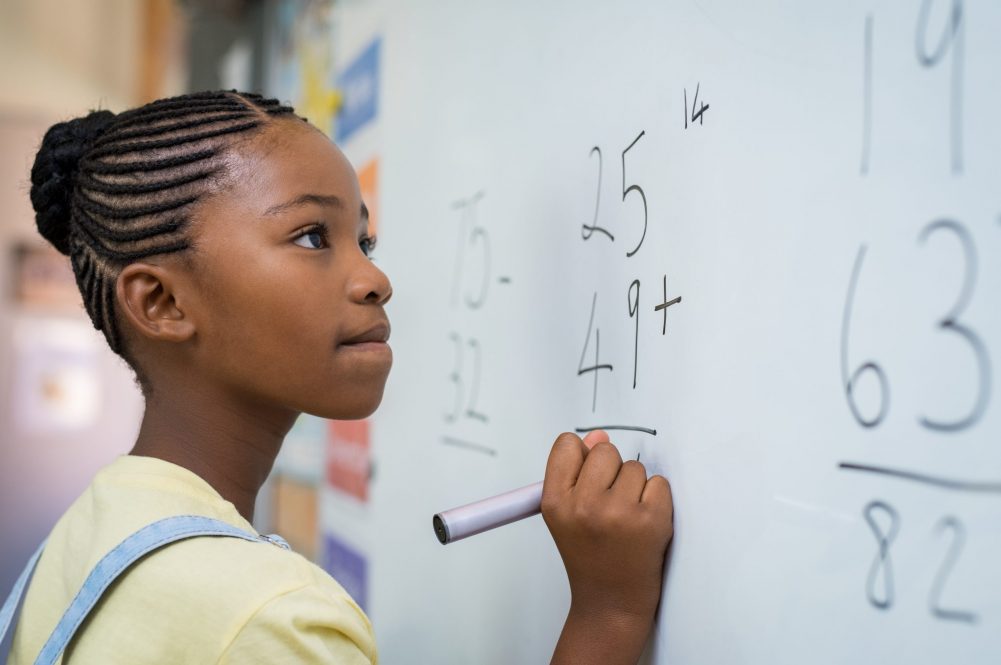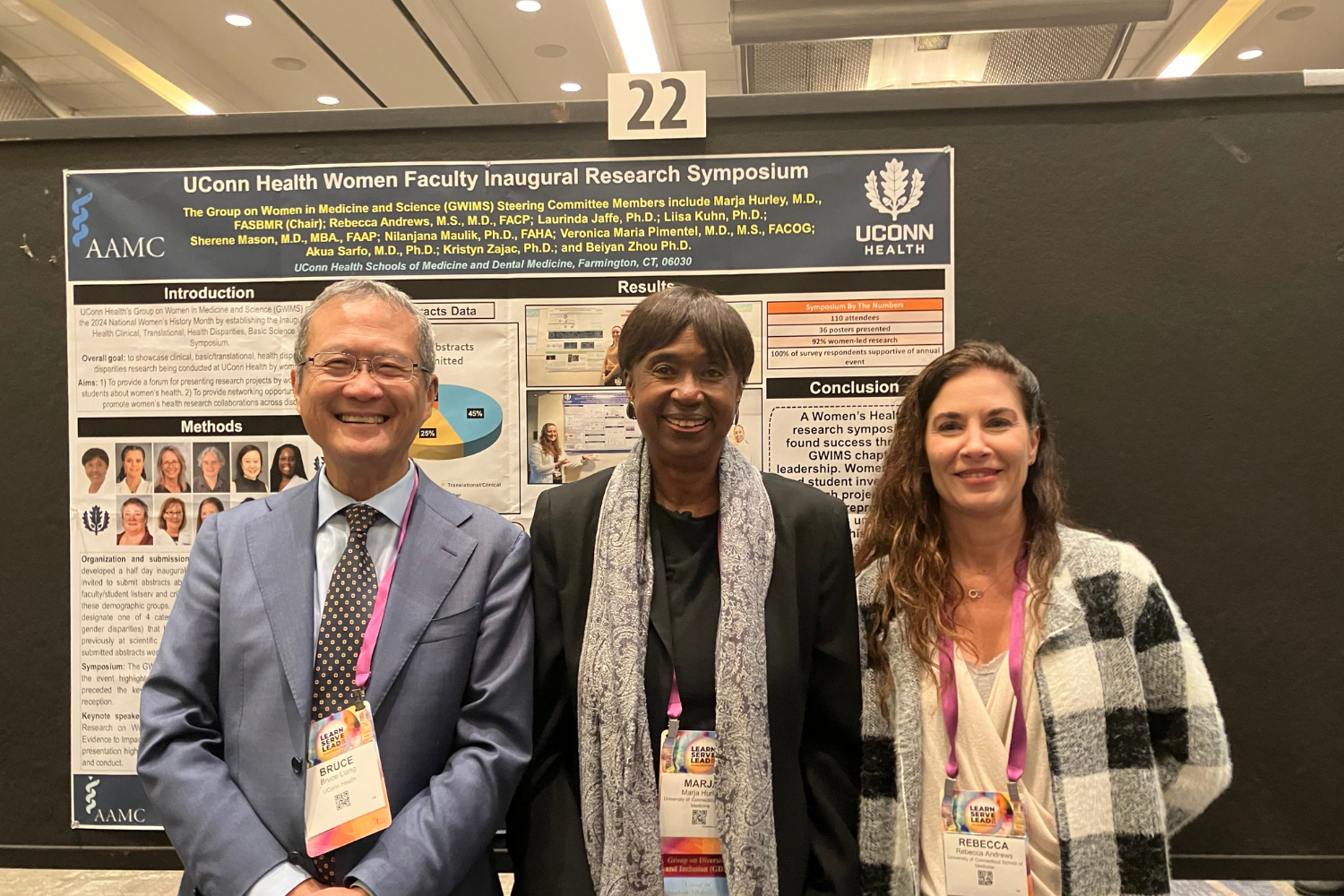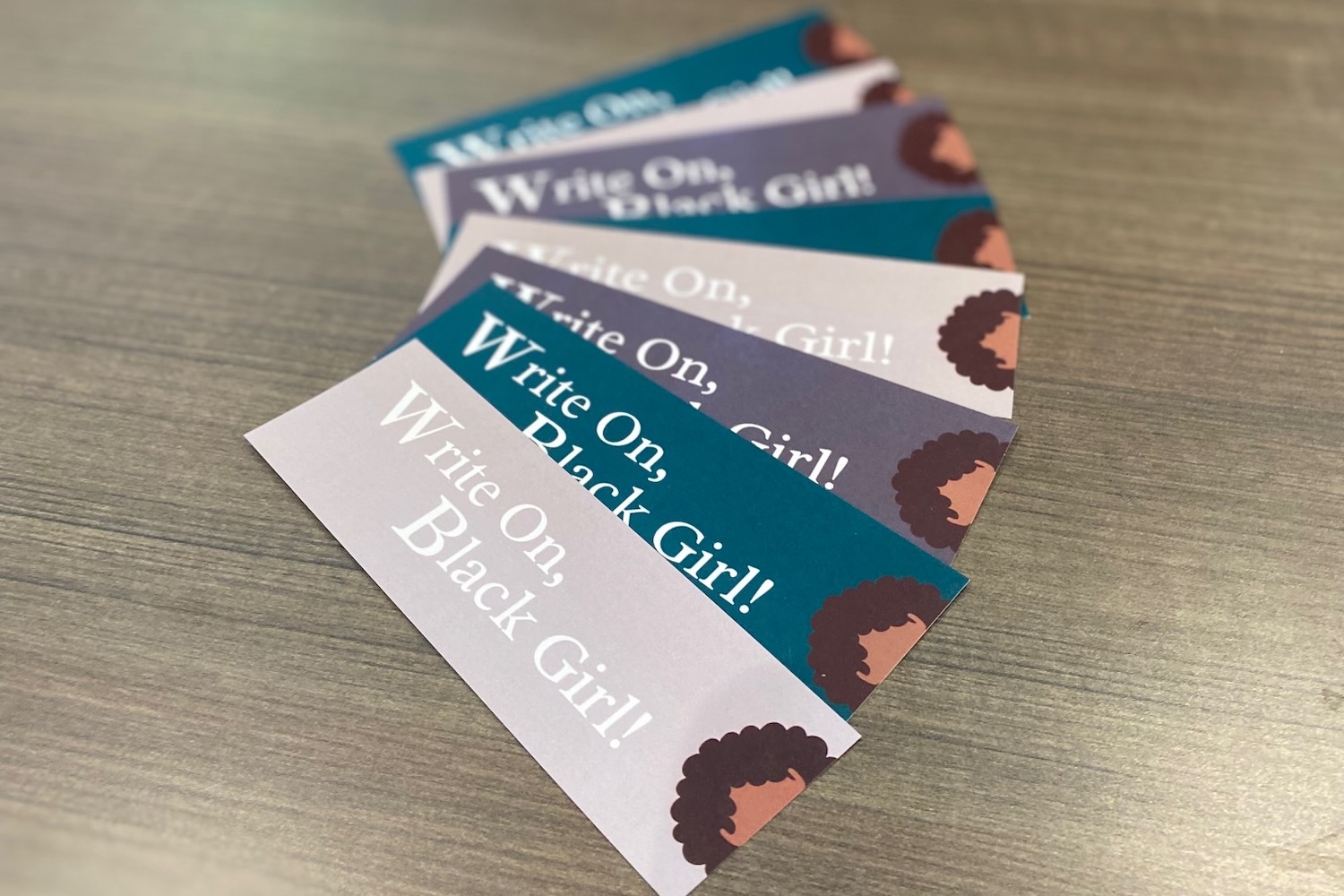Several years ago, when Marketa Burnett asked the young Black girls who were part of her research study to talk about what it meant first to be a girl and second a Black girl, they told her the two were indistinguishable.
“They said they didn’t know what it means to be just a girl because they don’t have just girl experiences,” she says. “That really surprised me to see so plainly they were having a hard time even coming up with words to describe what it means to be a girl. They couldn’t separate that experience from being a Black girl.”
What’s more, Burnett says, one sixth grader told her about how teachers treated her differently and one refused to put her in an accelerated class despite her grades. The girl used the word racism to describe what was happening yet added she wasn’t planning to tell her parents because she didn’t want the situation to become a problem, almost protecting them.
“Black girls from an early age understand what’s happening to them and aren’t afraid to define it as sexism and racism,” says Burnett, an assistant professor in UConn’s Department of Human Development and Family Sciences and Africana Studies Institute. “They also have a lot to say about what they need, and that’s one of the most exciting things I get to do as a researcher. I get to hear from our future changemakers about what they need to thrive.”
Through the lens of the 10-year-old Black Girl Magic movement, Burnett and four colleagues offer three suggestions for making K-12 learning spaces more conducive to Black girls and their learning needs, using suggestions straight from the source – the girls themselves.
Their study, “’Black Girl Magic is everything:’ Recommendations for cultivating supportive spaces for Black girls,” was published online last month in Theory Into Practice.
Burnett explains that Black Girl Magic, which has been used online as #BlackGirlMagic, was coined in 2013 by social media influencer CaShawn Thompson to uplift and celebrate the accomplishments of Black girls and women.
Since then, researchers have debated whether it’s put additional pressure on Black girls and women. Opinion columnists in newspapers, magazine, and digital publications also have questioned whether the phrase gives the impression that Black women are quite literally magical, effortlessly rising above the pressures of their lives, needing no change in the way they’re perceived or treated.
Mindful of that opposition, Burnett says she and her colleagues sought to return to the original message of Black Girl Magic in offering their suggestions to teachers, administrators, counselors, team leaders, coaches, and community members.
“Every Black girl has magic within her,” Burnett says. “She has different strengths and things that make her brilliant. She’s beautiful and she has incredible potential. There’s not a right way to have Black Girl Magic. It might be doing well in your English class or excelling in sports or music. Maybe it’s standing up and advocating for yourself. Whatever it might be for you, it’s something that needs to be celebrated.”
Their first recommendation is for adults to consider the types of gender racial messaging Black girls are exposed to and ensure it not only is positive but also balances lessons in both preparation and empowerment, she says.
“We know Black girls are aware of the stereotypes about them,” Burnett says. “We found that girls oftentimes are being affirmed and empowered at home, so they’re prepared when they experience racism and sexism in their daily lives. Those lessons of affirmation and empowerment need to continue in other places Black girls spend time.”
Secondly, they say, educators need to intentionally create spaces that encourage Black girls to feel a sense of belonging and support.
Burnett says one of the schools in the study had a library that was set up to be calming, serene, and cozy. Consequently, the Black girls who attended school there said they felt they could be their authentic selves when visiting.
“Unfortunately, a lot of times Black girls feel as if they don’t belong in traditional school spaces or they have to completely change who they are and conform in order to be successful,” Burnett says. “If we as educators think more creatively about doing things outside the norm, we’ll find that Black girls will excel more.”
Black girls reported to Burnett and her colleagues that teachers often admonish them for being too talkative, when in fact they are working on a project as a group.
This type of bias – thinking that just because a student, in this case a Black girl, is talking they must be goofing off – contributes to the difficulties Black girls report having in school. Burnett says that for Black girls, friendship and community is everything.
“Friendships can actually become some of their first places of learning, not just about who they are but also how to handle conflict, how to learn about emotions,” Burnett says. “We need to think about how friendships can be used for learning and development.”
That’s the third recommendation from the group: valuing social relationships and understanding that learning doesn’t happen just when doing homework or a classroom activity.
“Even though I grew up a Black girl, the experiences of today’s Black girls are so different and diverse compared to my own,” Burnett says. “Social media is very different for them than when I was growing up. Peer relationships look different, schools look different. Today’s Black girls are teaching me all the time.”
When she was in school, Burnett says her parents advocated for her to be put in advanced classes, it wasn’t something that was automatic even though she had the grades. And when she took Advanced Placement courses, for instance, they needed to be taken online because they weren’t offered at her school.
Black and Latine students are underrepresented in gifted programs, Burnett says, even when they have the grades to gain entry.
That’s a systemic problem, she acknowledges, that will take time to change.
“What we can do right now is find ways to support kids in different ways, using after-school and summer programs as opportunities for learning,” she says, noting the growing number of studies on the importance of extracurricular programs.
While leaders need to recognize the disparities and inequalities in education, Burnett says it’s just as paramount to hear about the joy, happiness, and potential that exists. For instance, her study shows that despite struggles with racism and sexism, Black girls report they’re proud to be Black girls.
And while that doesn’t mean systemic changes aren’t needed, it’s a testament to how well they’re doing with minimal help. Imagine their success with more resources, Burnett says.
“We believe all Black girls have magic within them,” she says, “and it’s up to us to make sure we’re nurturing that, supporting them, and creating safe spaces for them to thrive. That’s what this paper is about, not just Black Girl Magic, but intentionally thinking about how to support the magic in all Black girls.”



